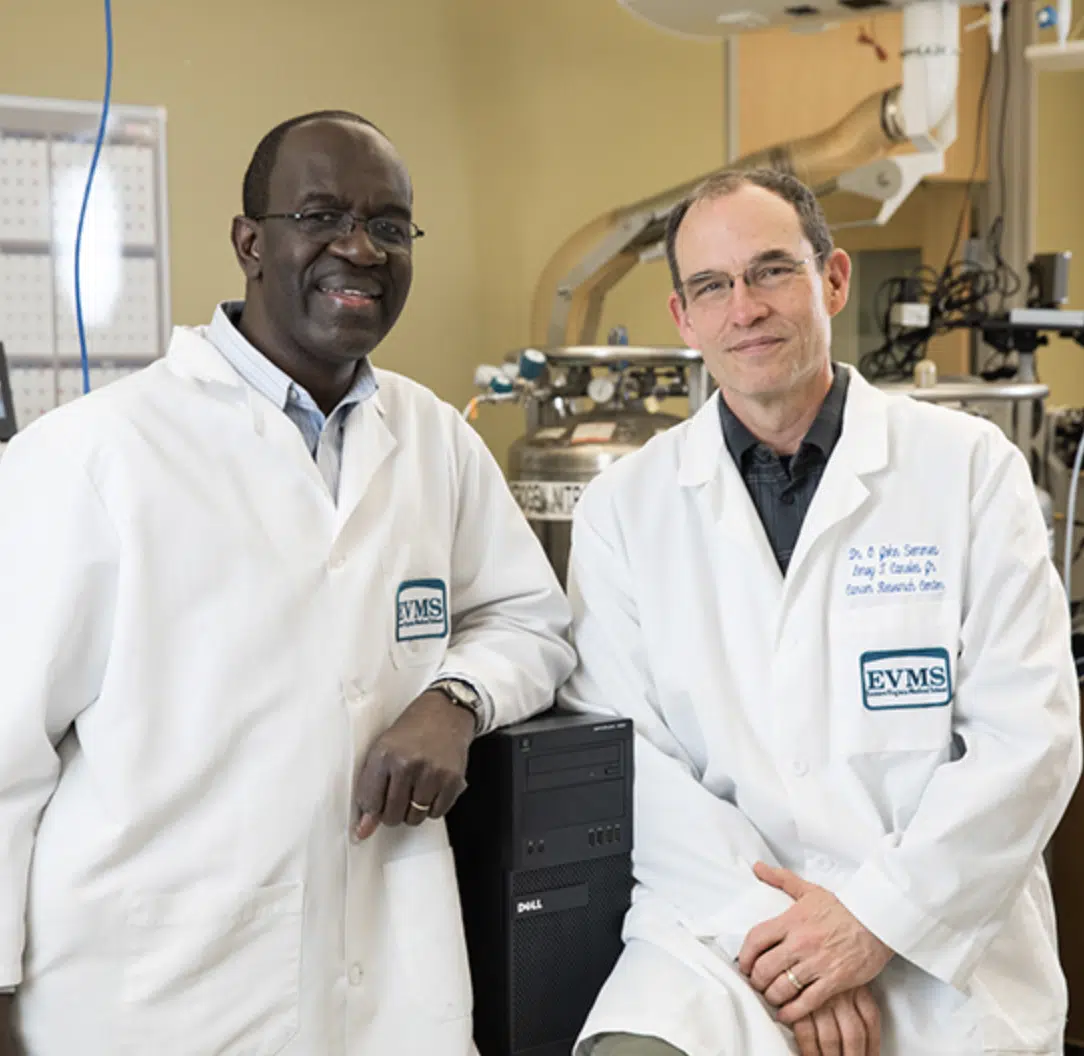
Click here to read original article
The National Cancer Institute, part of the National Institutes of Health, recently awarded researchers at the EVMS Leroy T. Canoles Jr. Cancer Research Center a $4 million grant to continue work on a breakthrough in the area of early detection of aggressive prostate cancer. The EVMS-led research team brings together internationally recognized translational research groups from the U.S. and Canada. This grant brings the total awarded to EVMS through this initiative to $11 million.
The Early Detection Research Network is a prestigious program administered by the Division of Cancer Prevention of the National Cancer Institute. The network supports the complete translational pipeline for cancer biomarker development with an emphasis toward getting new biomarkers into the clinic.
The EVMS team will be part of the network’s Biomarker Characterization Centers, of which there are 10 across the country. These characterization centers interact closely with designated Clinical Validation Centers and a Data Management and Coordinating Center to streamline the bench-to-bedside process.
“This grant will help us continue our work to develop tests that can identify aggressive prostate cancer before it advances and to realize our dream of personalized care that tailors treatment decisions to fit the individual patient,” says John Semmes, PhD, Director of the cancer research center and Professor of Microbiology and Molecular Cell Biology. “We want to be able to identify advanced disease prior to surgery so that the best treatment options are implemented earlier.” The EVMS group is co-led by Julius Nyalwidhe, PhD, also a member of the center and Associate Professor of Microbiology and Molecular Cell Biology.
In the initial phase of the study, researchers identified a liquid-biopsy biomarker for aggressive prostate cancer. It’s the first protein-based liquid biomarker of its kind.
“Targeted Proteomics Identifies Liquid-Biopsy Signatures for Extracapsular Prostate Cancer,” co-authored with researchers at the University of Toronto and the Ontario Institute for Cancer Research, was published in the journal Nature Communications. The team worked with Urology of Virginia to collect urine samples taken after a digital rectal exam. They found the urine contained prostatic fluids that could identify whether a man had a metastatic form of prostate cancer.
The next step in the study is to optimize assay performance and test for clinical effectiveness. “We are working closely with University of California, Los Angeles and University Health System in Toronto to make this a reality,” Dr. Semmes says. “Our team’s goal is to bring non-invasive early detection biomarkers into the clinic.”